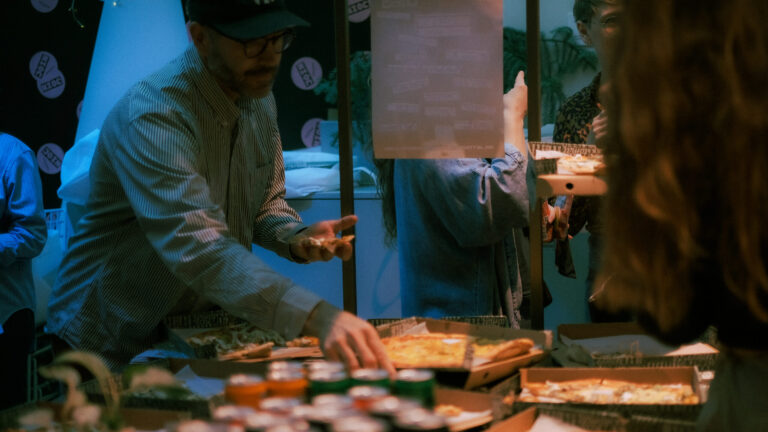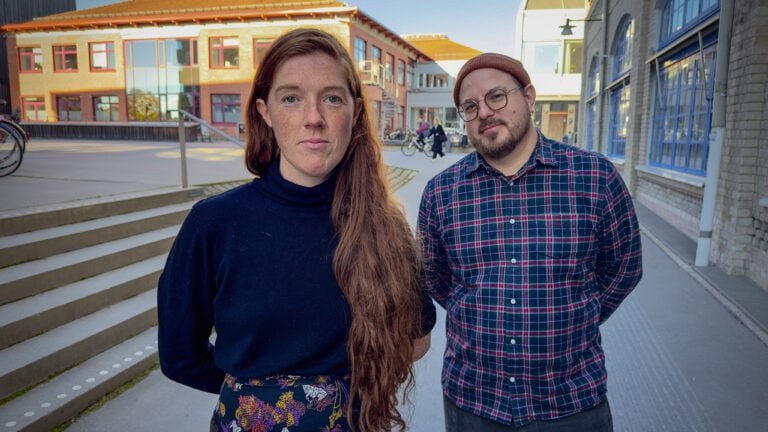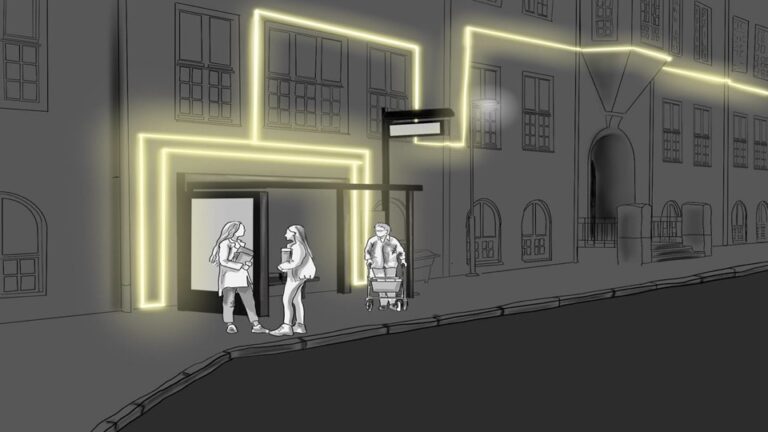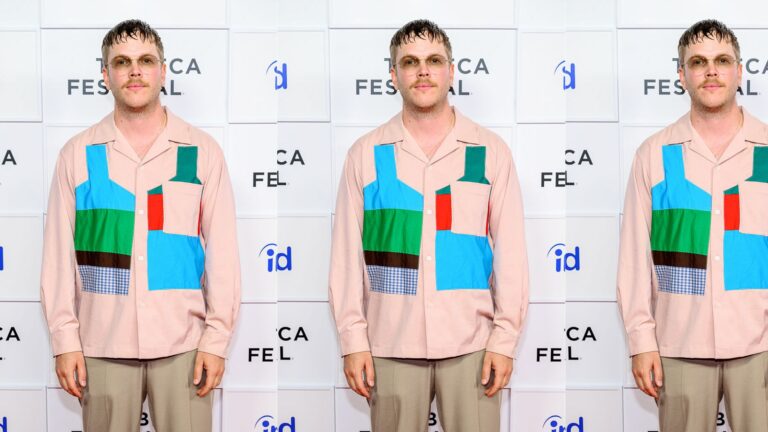All design expressions should be possible. That's the basic idea when Gustav Skoogh fantasises about the future of his company Sirka. The small room at eXpression Umeå is not enough and now he is looking for a workshop - where anything can happen.
The office neighbours usually giggle a little when they look into Gustav's cubicle. In just a few square metres, he has crammed two sturdy drawing cabinets for sheets of paper and plans. Cartons from his favourite printing house are stacked in front of a bulky cutting machine. A corner desk further challenges the laws of physics.
But the designer in question does not seem to suffer from claustrophobia. On the contrary, he seems very harmonious, as he sits back in his office chair and tells us about the winding road to his profession.
Gustav grew up in the small town of Högsjö in Södermanland. His father worked in a factory and his mother in health and social care. The family gave him full freedom to explore his many and varied interests - from pirates and mountain gorillas to Jimi Hendrix.
As a teenager, he started reading various blogs about the cultural history of jeans. He soaked up all the information he could find and eventually applied for an internship at a nerdy jeans store in Stockholm.
His interest in design was strong, but that didn't mean he knew what to do with it.
Then he was tipped off about Konstfack. And that was lucky, because there he found his flock of innovative designers and a kind of chaotic design philosophy, which cannot be explained by individual examples. It seems to be more about a wide-open attitude and a willingness to always embrace the original.
When I ask Gustav what he thinks is nice, he looks up at the ceiling and thinks for a moment. Inside, the viewfinder goes through a myriad of different expressions, to get stuck on the children's drawings at home on the fridge.
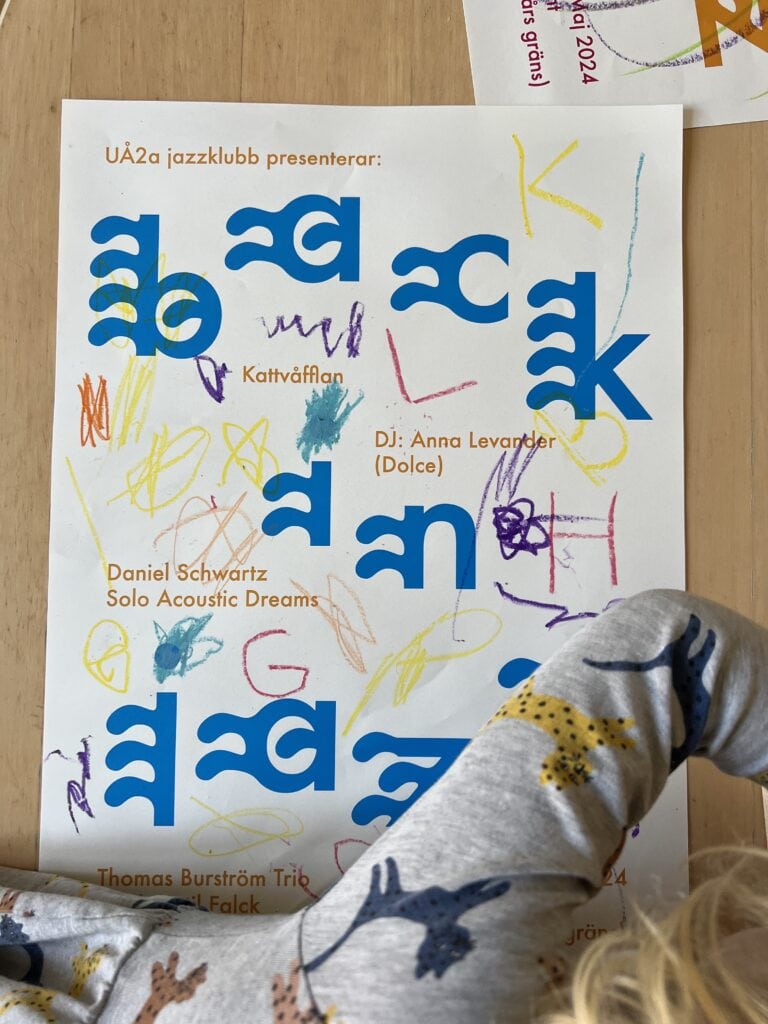
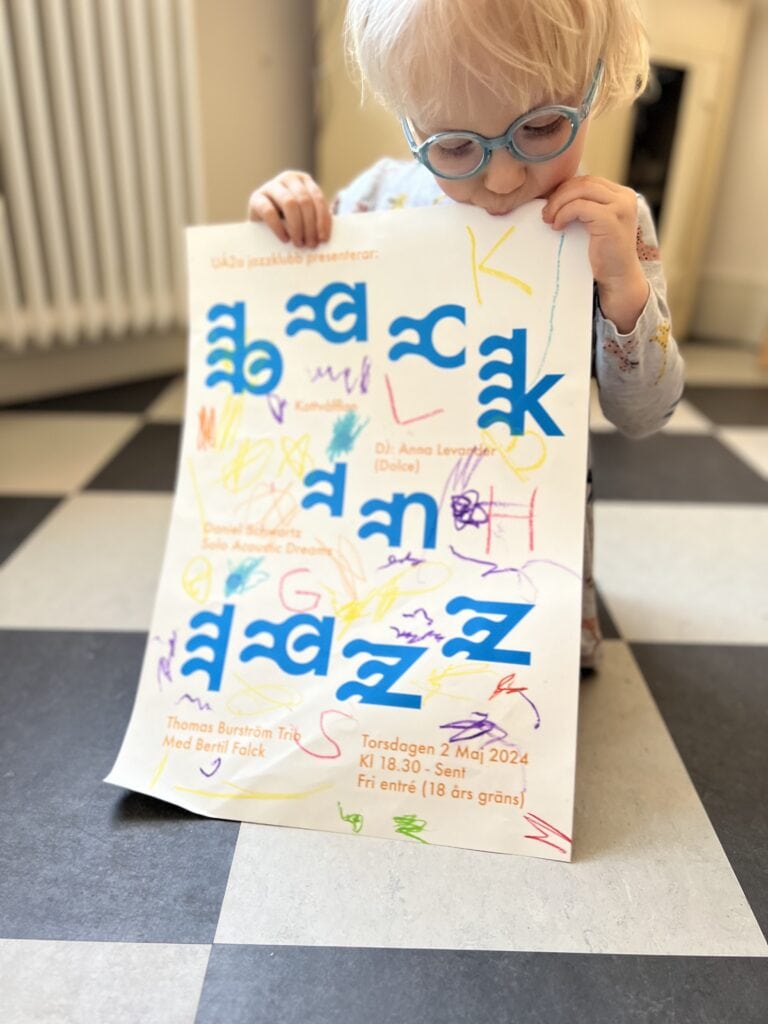
I like lots of things, but I'm probably most inspired by the unfinished and amateurish. That which is not so organised. I also like messy environments," he adds.
(What luck).
Today, Gustav Skoogh combines his own design work with teaching as a lecturer at School of Design and the Department of Aesthetics at Umeå University. The importance of affirming creative diversity is also at the heart of what he teaches.
The first thing he did as a teacher was to invite his designer friends to a series of on-screen meetings with the students - to show how vastly different their expressions and work could be. One of them works on a fashion magazine, while another has learnt to weld visual elements.
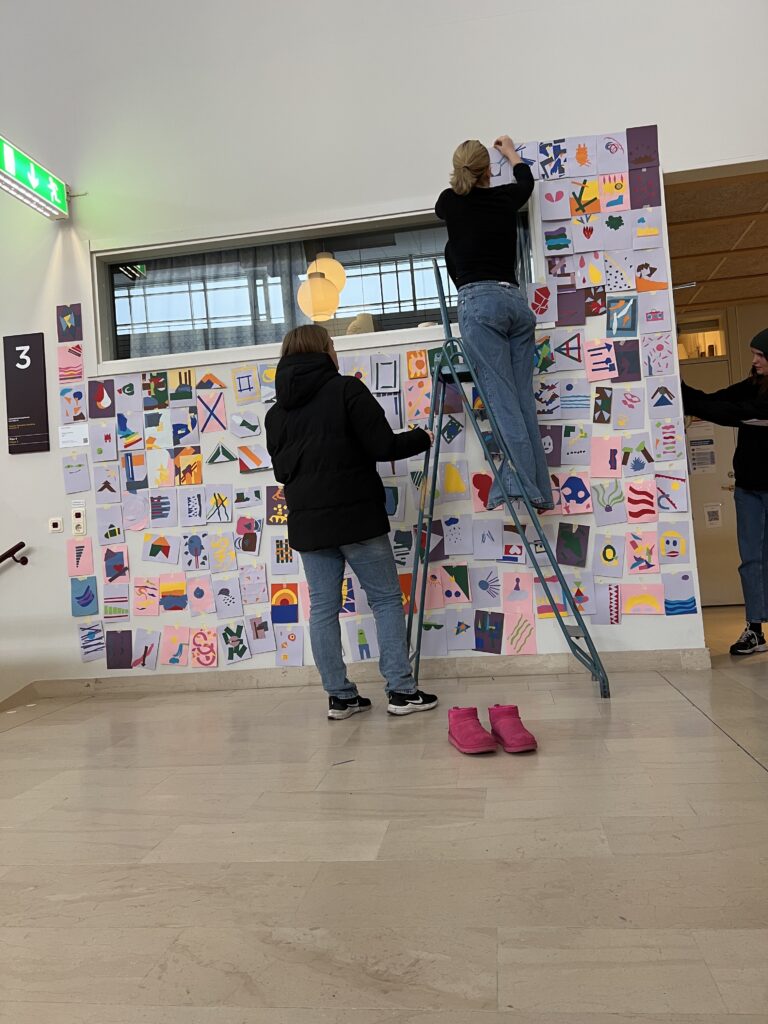
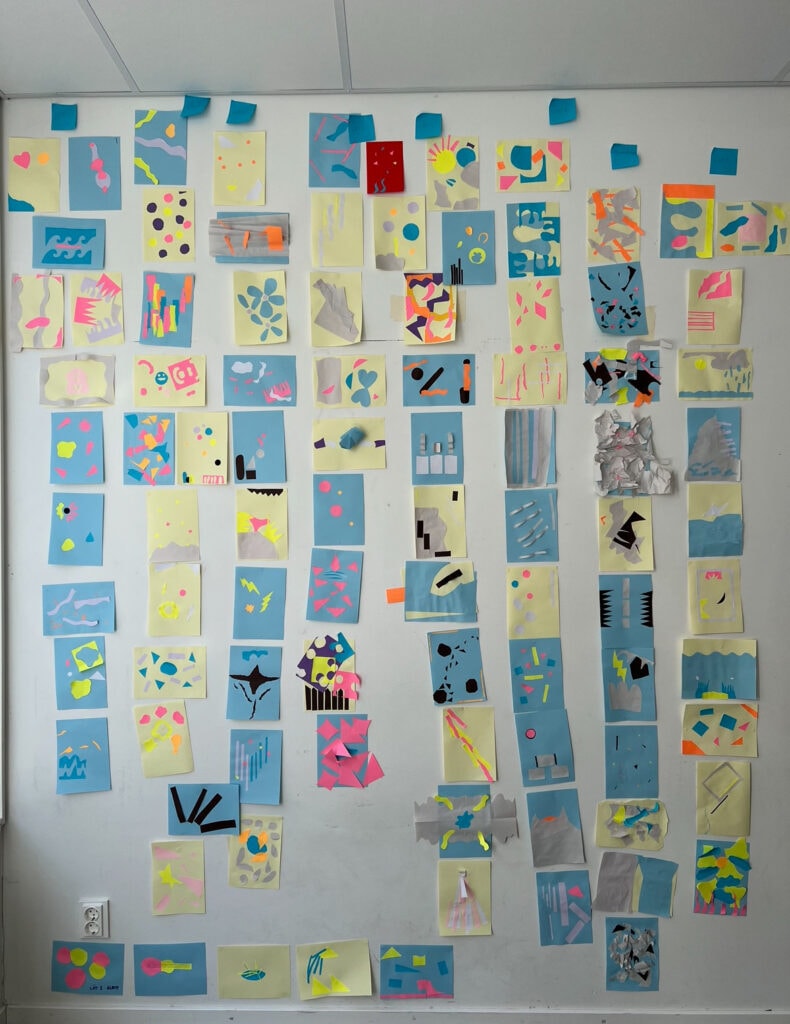
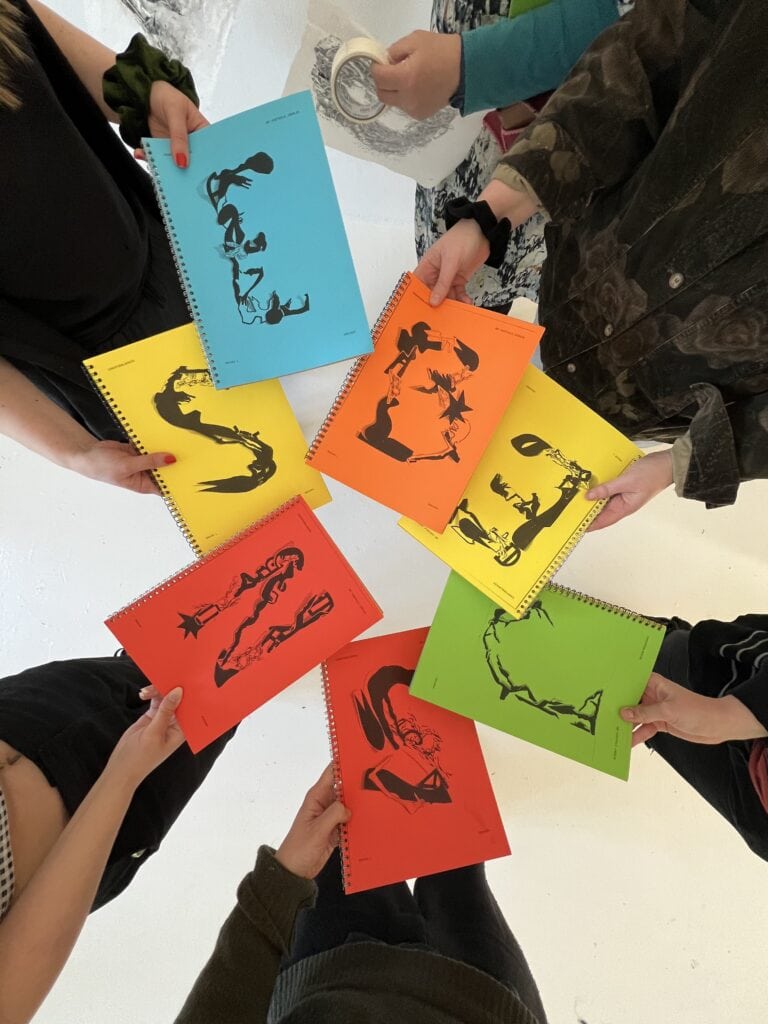
Anything is possible, says Gustav:
You can bead designs, you can draw with a broom, you can buy stars at Panduro to build typography from. But you can also create a strict system in a programme. Everything fits in this field and everyone has a place in it.
He freely admits that his idealism can be "a bit of a struggle in the marketplace", but that there are those who appreciate it all the more. And who said it should be easy? Communication without high ideals is downright dangerous:
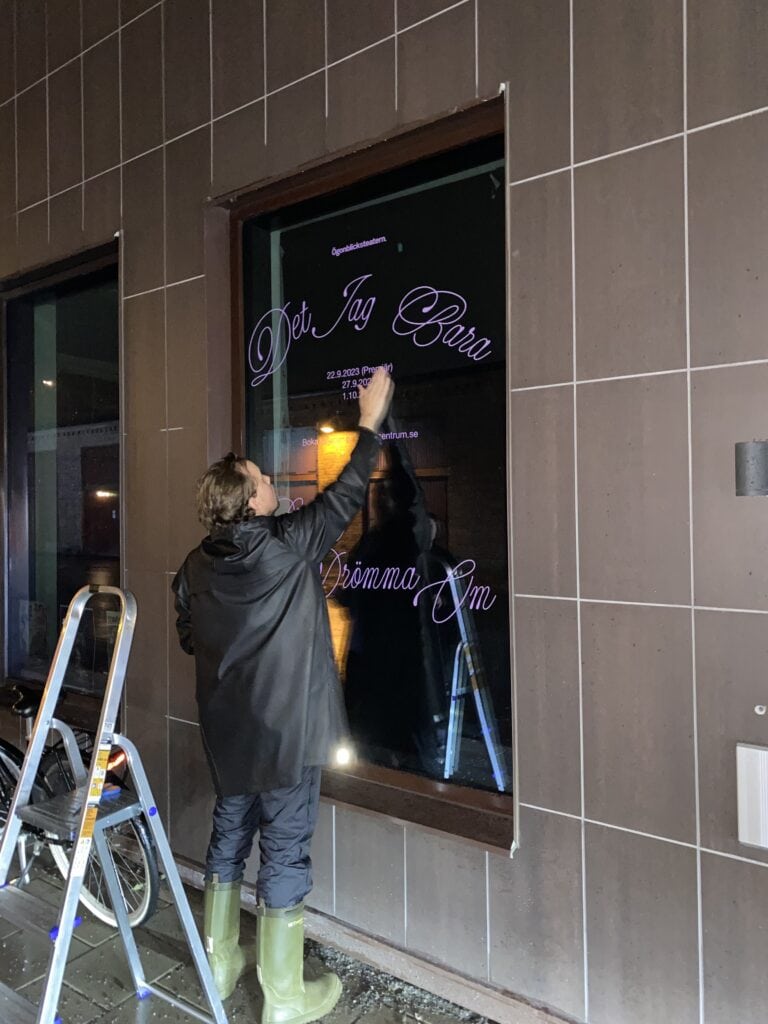
We live in a visual age. It is being exploited by businesses and dodgy political interests. So it's important to be aware of the power of branding. It's strong stuff," he says.
But also an antidote when the world feels too one-sided and narrow-minded. Gustav's design can be seen in posters and posts from UÅ2a - Umeå's second jazz club, which he helps to organise. When we meet, he is working on the visual identity for an upcoming podcast series, P.S.DS, where parents of children with Down syndrome write letters to themselves.
As a result of advances in prenatal diagnosis, far fewer children are born with chromosomal abnormalities today than twenty years ago.
I hope that the podcast can nuance how we as a society view each other and also how prospective parents view KUB tests," says Gustav, who is himself the father of a six-year-old with Down syndrome.
Perhaps this experience has shaped his worldview more than any other? What is clear is that he welcomes diversity in every conceivable context - in the cityscape of Umeå, for example.
When he moved to the city a few years ago, he reacted strongly to the fact that the city's public billboards only allowed A3 format. He immediately called a city official to suggest more and freer space.
The proposal went unheeded. But a few years later, on the eve of the School of Architecture's graduation exhibition, he had the chance to solve the problem, hands-on.
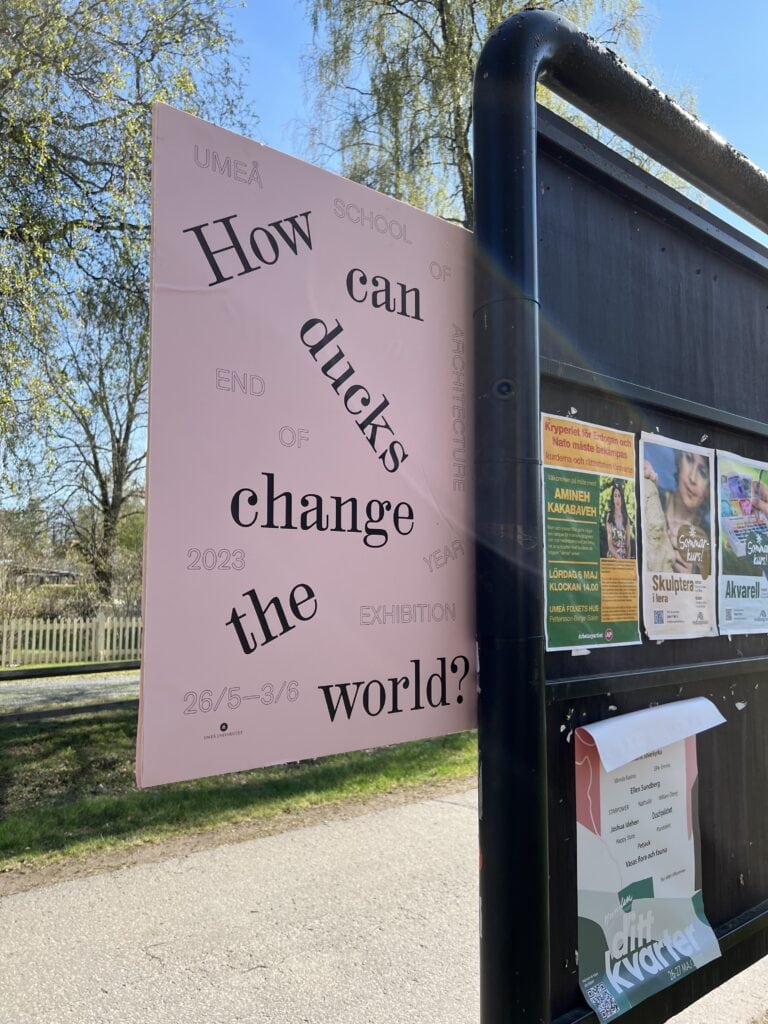
We had produced large, beautiful posters. And because we didn't want to cover someone else's poster, we extended some billboards on either side. It felt a bit mischievous in an innocent way.
On one of the filing cabinets in Gustav's office is an unfolded fan with Pantone's colour map. Through the window we can see the colourful facade of the School of Architecture and a glimpse of the river. He is looking for his own premises, he says, even though it feels sad to leave the obvious context of the Arts Campus. But Sirka, as his company is called, needs more space for the creative, physically.
Actually, I think I'm looking for a workshop. Do you know of any?
Text: Hanna Kangassalo
Footnote: The interview with Gustav was conducted in summer 2024. The new podcast P.S.DS with Julia Beil Amarilla will be released in October 2024.
Contact: Gustav Skoogh
Homepage: sirka.se
Instagram: @studiosirka


